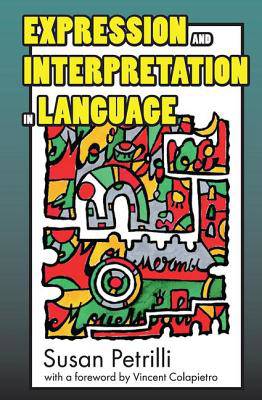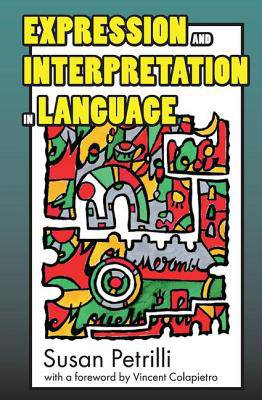
- Retrait gratuit dans votre magasin Club
- 7.000.000 titres dans notre catalogue
- Payer en toute sécurité
- Toujours un magasin près de chez vous
- Retrait gratuit dans votre magasin Club
- 7.000.0000 titres dans notre catalogue
- Payer en toute sécurité
- Toujours un magasin près de chez vous
Description
This book features the full scope of Susan Petrilli's important work on signs, language, communication, and of meaning, interpretation, and understanding. Although readers are likely familiar with otherness, interpretation, identity, embodiment, ecological crisis, and ethical responsibility for the biosphere--Petrilli forges new paths where other theorists have not tread. This work of remarkable depth takes up intensely debated topics, exhibiting in their treatment of them what Petrilli admires--creativity and imagination.
Petrilli presents a careful integration of divergent thinkers and diverse perspectives. While she abandons hope of attaining a final synthesis or an unqualifiedly comprehensive outlook, there remains a drive for coherence and detailed integration. The theory of identity being advocated in this book will provide the reader with an aid to appreciating the identity of the theorizing undertaken by Petrilli in her confrontation with an array of topics. Her theory differentiates itself from other offerings and, at the same time, is envisioned as a process of self-differentiation.
Petrilli's contribution is at once historical and theoretical. It is historical in its recovery of major figures of language; it is theoretical in its articulation of a comprehensive framework. She expertly combines analytic precision and moral passion, theoretical imagination and political commitment.
Spécifications
Parties prenantes
- Auteur(s) :
- Editeur:
Contenu
- Nombre de pages :
- 318
- Langue:
- Anglais
Caractéristiques
- EAN:
- 9781412842631
- Date de parution :
- 15-01-12
- Format:
- Livre relié
- Format numérique:
- Genaaid
- Dimensions :
- 160 mm x 236 mm
- Poids :
- 576 g

Les avis
Nous publions uniquement les avis qui respectent les conditions requises. Consultez nos conditions pour les avis.






